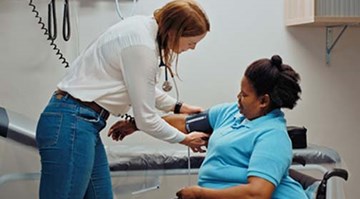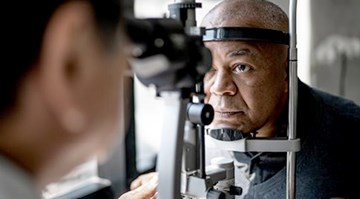
- Posted
IBS Awareness
With all of the recent rain and stormy weather, it may be tempting to stay inside and get cozy, but it may be time to spring clean your exercise routine.

- Posted
Are You at Risk for Endometriosis?
Endometriosis is on the Centers for Disease Control and Prevention’s (CDC) list of common reproductive health concerns for women, but what is it?

- Posted
2020-2021 Community Impact Report
The 2020/2021 Community Impact Report is the story of how we work to fulfill our purpose: Helping Arkansas Live Better. We believe healthier individuals create more vibrant communities.

- Posted
What You Need to Know About Heart Disease
How’s your heart? February is American Heart Month. This is a great time to check your heart health and learn more about heart disease.

- Posted
How to Make a Budget-Friendly Grocery List
Eating healthy on a budget may sound like a tall order, but if you’re armed with a carefully planned list before you hit the supermarket aisles, you can keep your health and your bottom line in check.

- Posted
How To Choose a Primary Care Physician
You and your primary care physician (PCP) share an important relationship focused on one thing—your health. To get the most out of your care, it’s important to choose a PCP you are comfortable with

- Posted
Five Things You Should Know About Glaucoma
If you wear glasses or have contacts, you’re probably familiar with the glaucoma test that shoots a puff of air into your eye before an eye exam. While it’s not the most pleasant part of the visit, it

- Posted
Healthy, Homemade Holiday Gifting
Figuring out what to gift family members and friends during the holidays can be difficult and stressful. Homemade gifts are a thoughtful and sometimes healthier and less expensive alternative

- Posted
Alzheimer's Awareness
November is Alzheimer’s Awareness Month, which makes it a good time to learn about Alzheimer’s.

- Posted
Use 988 to Connect to the National Suicide Prevention Lifeline
988 is the new three-digit code for the National Suicide Prevention Lifeline. The Lifeline connects you to 24/7, free, and confidential mental health and crisis support.





